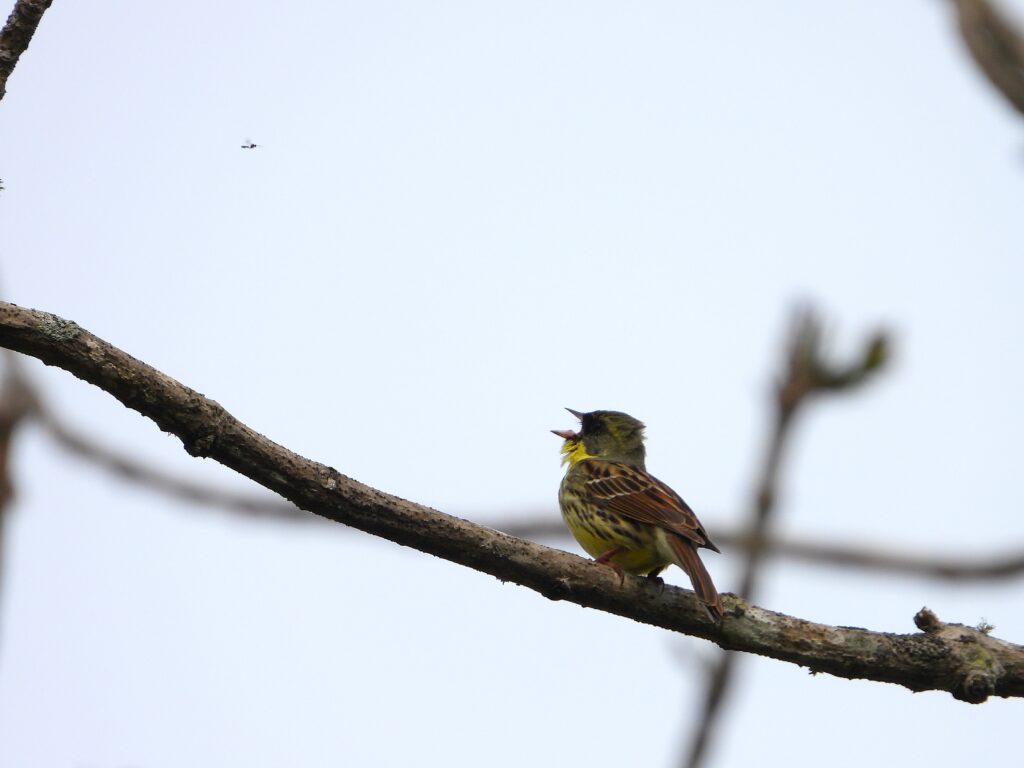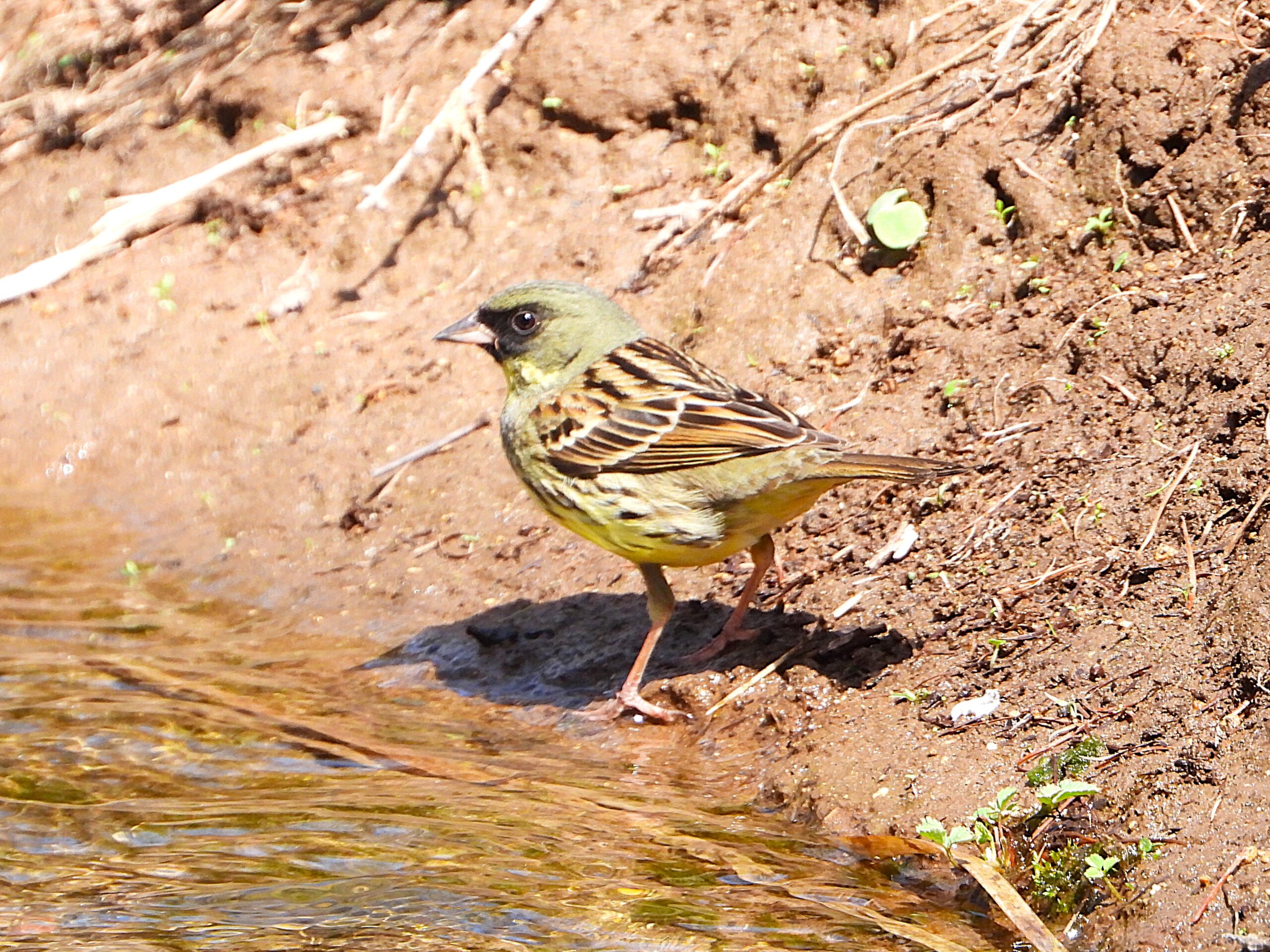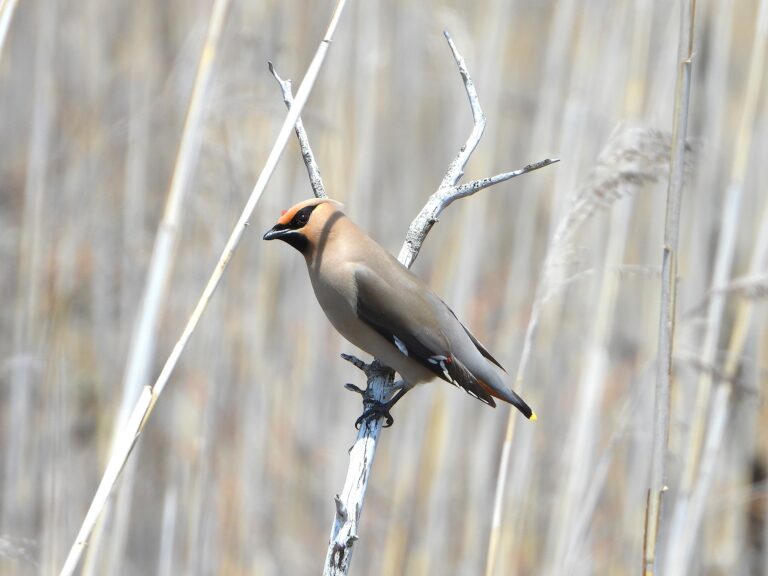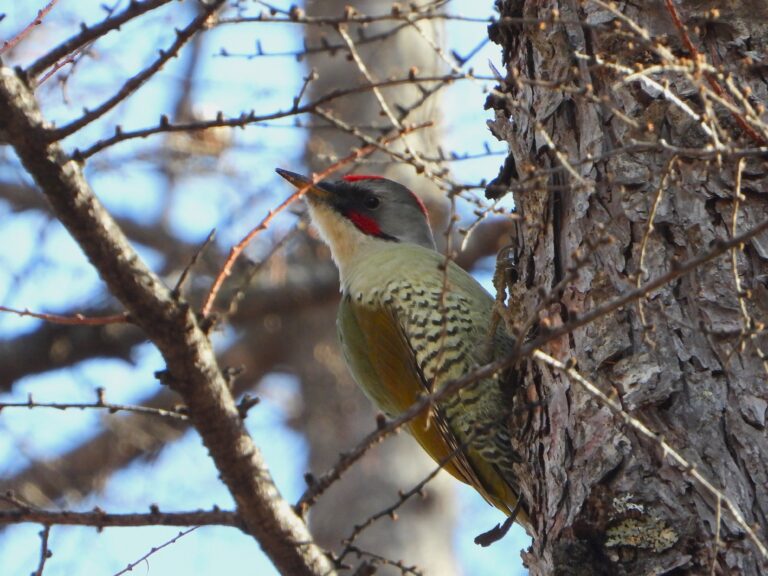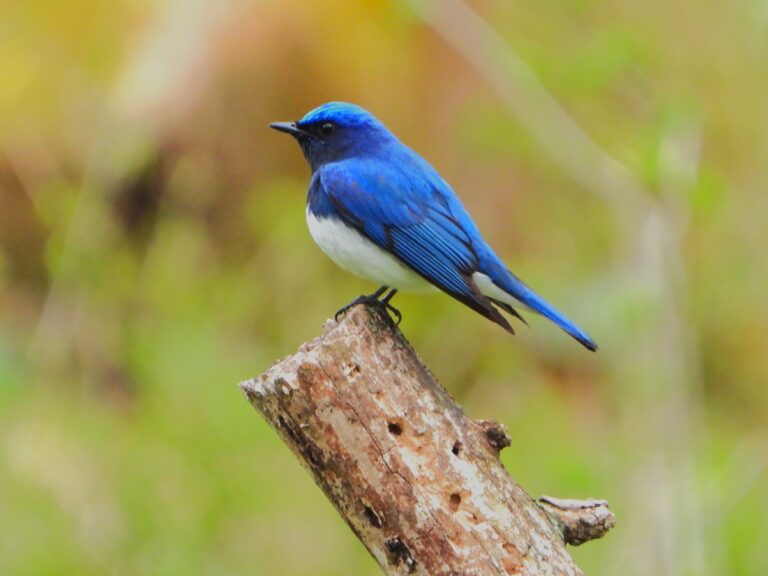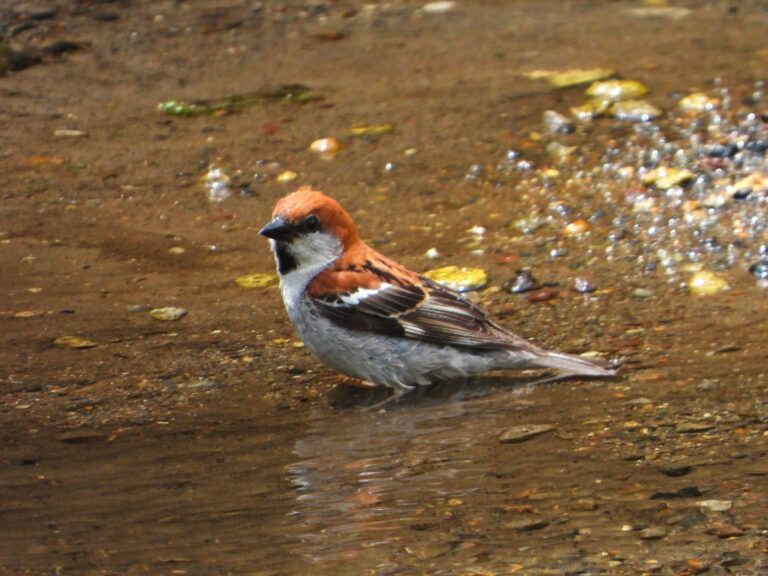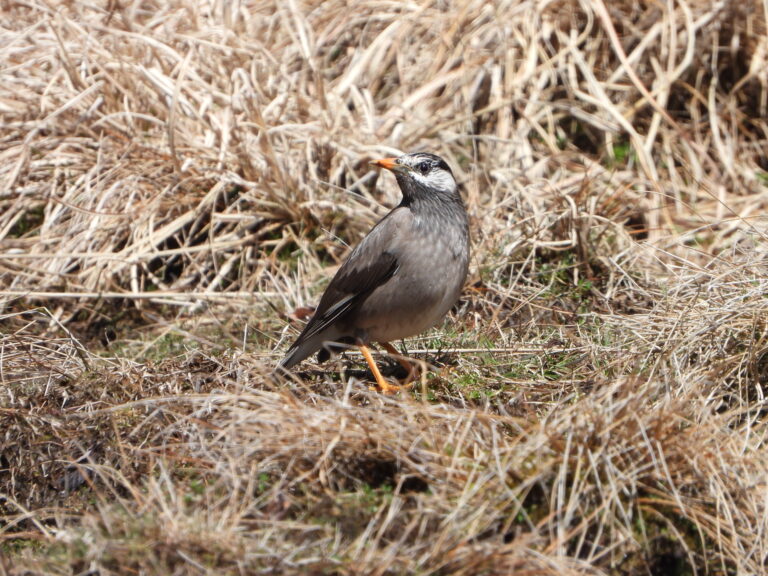Black-faced Bunting (Emberiza spodocephala) – Wildlife of Japan
Introduction
The Black-faced Bunting is a small, ground-dwelling bird commonly seen in Japan’s thickets and reedbeds during winter. Northern populations breed in Hokkaido and cooler uplands, while others migrate southward to overwinter. Its soft olive tones and shy behavior make it a charming yet easily overlooked species.
Appearance
A compact bunting around 16 cm long, with a rounded head and fine bill. Males in breeding plumage show a dark mask and yellow-olive underparts, while females and non-breeding birds are duller brown with faint streaking. White outer tail feathers are sometimes visible in flight.
Habitat & Distribution
It inhabits dense low vegetation such as wet thickets, reedbeds, and brushy riverbanks. In Japan, it breeds mainly in Hokkaido and northern Honshu, and winters widely across the main islands wherever brush remains.
Where to See in Japan
From autumn to spring, look for them along overgrown paths, in parks, and among reeds in Honshu, Shikoku, and Kyushu. In Hokkaido, they can be found singing in early summer from forest edges and meadows.
Behavior
Usually in small flocks in winter, they stay low to the ground, giving short “tsip” calls and darting into cover. In breeding season, males sing from low shrubs or reeds with a simple, rhythmic song.
Diet
Seeds of grasses and weeds form the bulk of their diet outside the breeding season. In spring and summer, they eat insects to feed their chicks.
Reproduction
Nests are placed close to the ground, hidden in grass or reeds. Clutches usually contain four to five eggs, and both parents feed the chicks.
Conservation
The species is globally listed as Least Concern but locally declining in Japan due to loss of brushy habitats and reedbeds. Some prefectures include it in their Red Lists.
Author’s Impression
During winter walks, I often hear their sharp calls first before seeing them slip into dense grass. When sunlight hits their olive plumage, the quiet beauty of this understated bird becomes clear.
